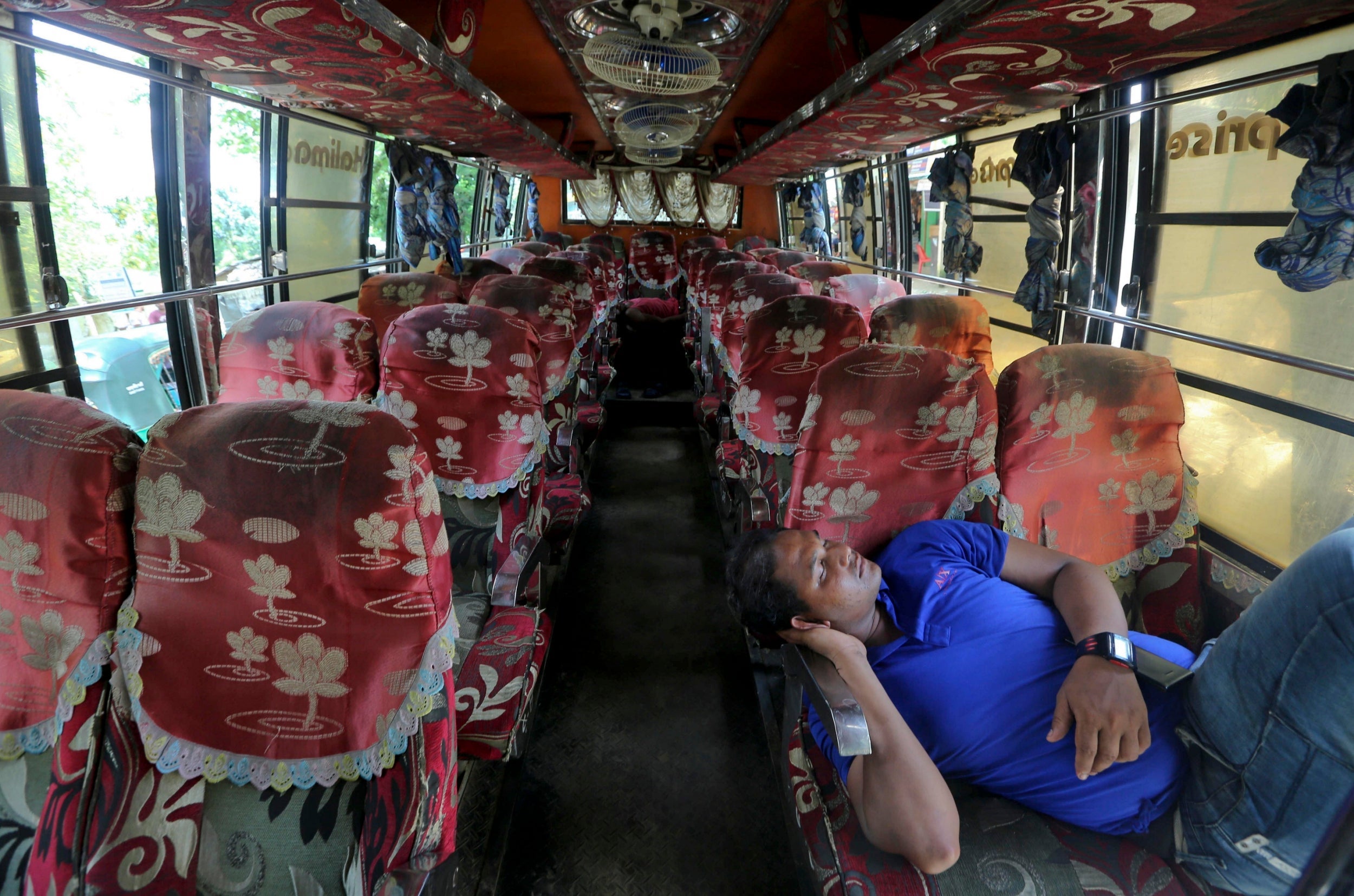‘Not a single Rohingya wants to go back’: Buses back to Myanmar left empty as refugees mark second year since fleeing ‘genocide’
Conditions in Bangladesh camps have ‘stabilised’ – while refugees fear they would face renewed persecution if they returned to Rakhine

Your support helps us to tell the story
From reproductive rights to climate change to Big Tech, The Independent is on the ground when the story is developing. Whether it's investigating the financials of Elon Musk's pro-Trump PAC or producing our latest documentary, 'The A Word', which shines a light on the American women fighting for reproductive rights, we know how important it is to parse out the facts from the messaging.
At such a critical moment in US history, we need reporters on the ground. Your donation allows us to keep sending journalists to speak to both sides of the story.
The Independent is trusted by Americans across the entire political spectrum. And unlike many other quality news outlets, we choose not to lock Americans out of our reporting and analysis with paywalls. We believe quality journalism should be available to everyone, paid for by those who can afford it.
Your support makes all the difference.A second attempt by the Myanmar government to repatriate thousands of Rohingya refugees from Bangladesh has failed to attract a single volunteer, almost exactly two years after the start of a campaign of persecution that the UN has said may constitute a genocide.
Myanmar had drawn up a list of almost 3,500 people who it said had been “cleared” for return to Rakhine State, where new homes have been built in anticipation of the move.
But despite living in cramped conditions in the biggest refugee camp in the world at Cox’s Bazar, not a single person interviewed had said they wanted to go back, according to the UN’s refugee agency UNHCR and the Bangladesh government.
Preparations for the repatriation effort had sparked small scenes of protest and anxiety among some of the Rohingya refugees, who say they want to return home to Rakhine – but only as long as they are guaranteed citizenship, safety and the right to move and work freely.
“Not a single Rohingya wants to go back without their demands being met,” said Bangladesh’s refugee commissioner Abul Kalam on Thursday, after rows of buses were left waiting empty.
A similar round of repatriation talks led to widespread fear and confusion last year, prompting the authorities to make greater efforts this time around to stress that any returns to Myanmar would be on a voluntary basis. Questions remained, however, over how the lists of those eligible to return were being drawn up.
And in the chaos of the camps, where people are as likely to get information from Facebook as they are from official sources, not everyone appeared to have got the message.
One refugee, Ramzan Begum, told the Associated Press her mother-in-law fled the camp home for an unknown destination on Wednesday night, ahead of the planned repatriation, and had not returned by Thursday.
“She told us she will not go back and left the home last night,” Begum said.
More than 1.1 million Rohingya refugees live in the camps outside Cox’s Bazar city in southeast Bangladesh, just across the border from Myanmar.
Of these, about 750,000 have arrived since 25 August 2017 in an exodus sparked by a bloody military and pro-government Buddhist militia crackdown which, Myanmar’s government says, was a reaction to Rohingya rebel insurgent attacks.
A UN-established investigation last year recommended the prosecution of Myanmar’s top military commanders on charges of genocide, war crimes and crimes against humanity. Myanmar’s government dismissed the report.
The UNHCR has now praised Myanmar’s attempts to start repatriations as “a positive step in the affirmation of the right to return of Rohingya refugees”.
In a statement, the UN refugee agency also praised Myanmar officials for travelling to Cox’s Bazar in July to meet Rohingya leaders in the camps, and said that “dialogue should continue”.
Yet at the same time, the NGOs which have been working to improve the lives of the refugees in the camps criticised the government of Myanmar for failing to make any “concrete efforts” to deal with the conflict that led to the crisis starting in the first place.
Myanmar officially refers to the refugees as “Bengalis” and refuses to recognise the Rohingya as citizens or even as an ethnic group, rendering them stateless, and those who remain in Rakhine face other forms of state-sanctioned discrimination including extreme restrictions on movement.
Manish Agrawal, country director for the International Rescue Committee in Bangladesh, told The Independent that in the past two years, a global effort had led to great improvements in immediate circumstances for refugees in the camps – from improved shelters to monsoon preparedness.
Beyond matters of “basic survival”, though, he painted a bleak picture of future prospects for the refugees, with about 97 per cent of youths aged 15 and over not receiving any kind of structured education or training – while being simultaneously banned from working.
“These youths are sitting idle, they have no education, no livelihoods, no stakebuilding. We have been witnessing growing safety and security concerns, increasing violence towards women, and also growing conflict between the local [Bangladeshi] host communities and the Rohingyas,” he said.
In a joint statement, 61 local and international NGOs said that conditions had been “stabilised” in the camps, but warned that “more needs to be done” to prevent the situation from deteriorating further. The agencies called on “the international community to increase funding for the humanitarian response in Bangladesh and Myanmar to improve the lives of refugees and host communities”.
Join our commenting forum
Join thought-provoking conversations, follow other Independent readers and see their replies
Comments